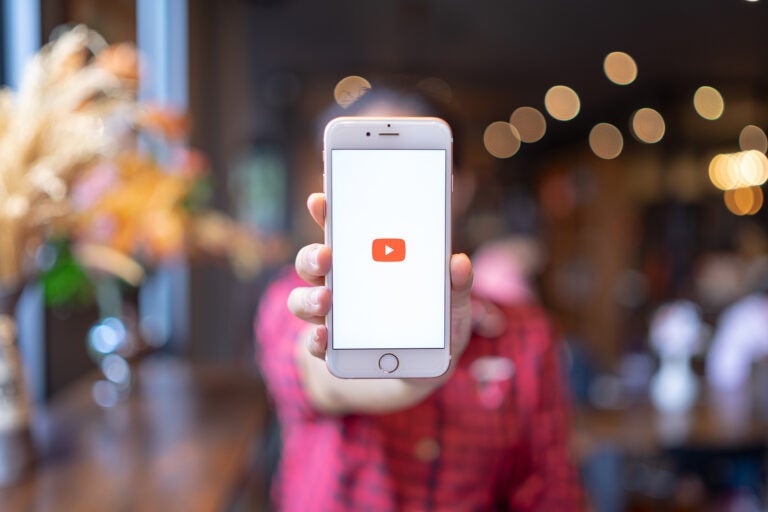The Rise of YouTube and How It’s Changed Our Lives
On this episode, we mark the 20th anniversary of YouTube with an exploration of the platform’s rise, evolution, and impact on our lives.
Listen 48:34
CHIANG MAI, THAILAND - Apr.08,2019: Woman holding Apple iPhone 6S Rose Gold with Youtube apps on screen. YouTube is the popular online video sharing website.
In April of 2005, the very first YouTube video made its debut — a grainy, 19-second clip of Jawed Karim, one of the platform’s founders, awkwardly introducing elephants at the San Diego Zoo. It’s an ordinary, even boring, moment on a slightly overcast day, but it sent a powerful message: that we could and should share the small moments of our daily lives with the world.
In the 20 years since, YouTube has become a content powerhouse featuring billions of videos that provide a never-ending stream of entertainment, chatter, and news. In the process, it’s revolutionized how we seek out and consume information, given rise to countless subcultures and movements, reshaped the worlds of entertainment and education — and maybe even changed how our brains work.
On this episode, we mark the 20th anniversary of YouTube with an exploration of the platform’s rise, evolution, and impact on our lives.
ALSO HEARD:
- Over the past few years, short-form videos have come to dominate social media — especially among kids and younger adults. And that’s led to concerns that this constant exposure to quick, rapid-fire media could be affecting viewers’ brains. To find out how kids are dealing with this shift, reporter Sara Willa Ernst talks with a teacher who experimented with incorporating TikTok videos into her lesson plans, along with researchers who explain why short videos are so
attractive, and why they could be compromising crucial skills like attention span, self-control, and delaying gratification. - Whether you need to fix a toilet or learn about organic chemistry, there’s one source that almost never fails: YouTube. We talk with developmental molecular biologist John Medina — an expert on the human brain — about why videos are so attractive and effective as a learning tool. Medina is the author of “Brain Rules,” a series of books that offer advice for different situations based on the latest in cognitive research.
- Bloomberg tech journalist Mark Bergen offers a history of YouTube and how it’s changed the world. His seminal book on the platform is “Like, Comment, Subscribe: Inside YouTube’s Chaotic Rise to World Domination.”
- If you’ve ever wondered what makes YouTube so alluring, cognitive science researcher Fritz Breithaupt has a potential answer — he says our brains are hardwired to tell and listen to stories. His new book is “The Narrative Brain: The Stories Our Neurons Tell.”
Segments from this episode
WHYY is your source for fact-based, in-depth journalism and information. As a nonprofit organization, we rely on financial support from readers like you. Please give today.






